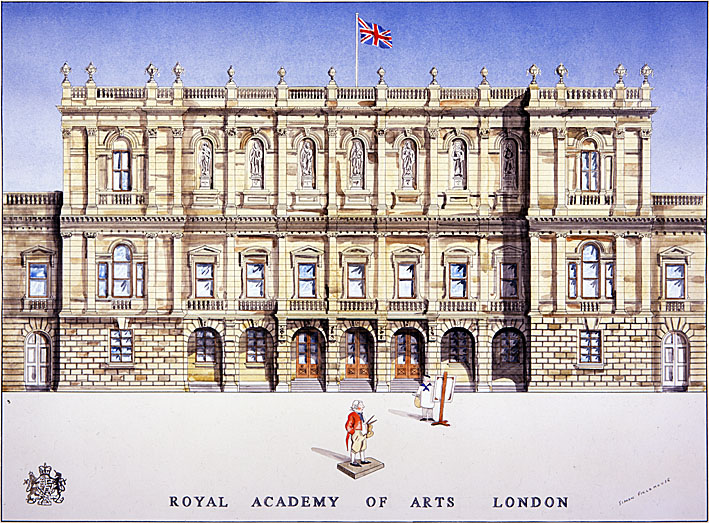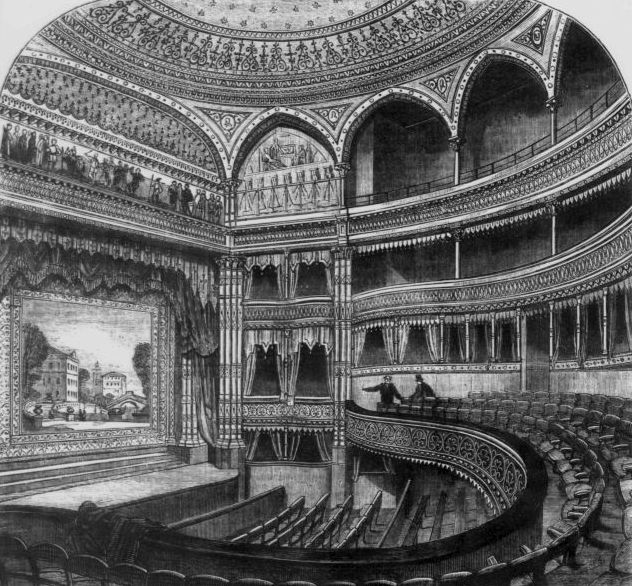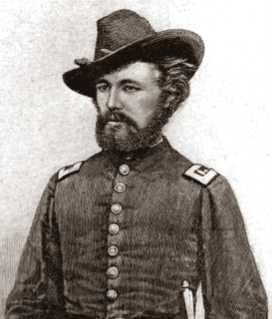|
Frank Wyatt (singer)
Frank Wyatt (7 November 1852 – 5 October 1926) was an English actor, singer, Actor-manager, theatre manager and playwright. After beginning his career as an illustrator and painter, in 1877 Wyatt began a stage career in comedy, Victorian burlesque, pantomime and operetta. In 1884 he had success in a Shakespeare role in Henry Irving's company, and in 1885 he created the role of Ravennes in the comic opera ''Erminie'', which went on to become an international sensation. In this production he met Violet Melnotte, who also appeared in ''Erminie'' and who managed the theatre where it premiered; they married in 1886. In his more than two-decade career on stage Wyatt is best remembered for his roles with the D'Oyly Carte Opera Company from 1889 to 1891, and in particular for creating the role of the Duke of Plaza-Toro in Gilbert and Sullivan's hit comic opera ''The Gondoliers''. Wyatt continued to perform in comic operas and comedies until about 1900. From the 1890s Wyatt and his wi ... [...More Info...] [...Related Items...] OR: [Wikipedia] [Google] [Baidu] |
Royal Academy
The Royal Academy of Arts (RA) is an art institution based in Burlington House on Piccadilly in London. Founded in 1768, it has a unique position as an independent, privately funded institution led by eminent artists and architects. Its purpose is to promote the creation, enjoyment and appreciation of the visual arts through exhibitions, education and debate. History The origin of the Royal Academy of Arts lies in an attempt in 1755 by members of the Society for the Encouragement of Arts, Manufactures and Commerce, principally the sculptor Henry Cheere, to found an autonomous academy of arts. Prior to this a number of artists were members of the Society for the Encouragement of Arts, Manufactures and Commerce, including Cheere and William Hogarth, or were involved in small-scale private art academies, such as the St Martin's Lane Academy. Although Cheere's attempt failed, the eventual charter, called an 'Instrument', used to establish the Royal Academy of Arts over a decad ... [...More Info...] [...Related Items...] OR: [Wikipedia] [Google] [Baidu] |
Kate Santley
Evangeline Estelle Gazina (c. 1837Culme, John ''Footlight Notes'', No. 361, 14 August 2004, accessed 7 September 2012; an"Kate Santley by Sarony Cabinet Card" ''Remains to Be Seen'', accessed 7 September 2012 – 18 January 1923), better known under her stage name, Kate Santley, was a German-born actress, singer and comedian. After spending her childhood in the US, she came to England in 1861, where she had a successful career, later also becoming a theatre manager. Early life Santley's parents emigrated from Germany to Charleston, South Carolina, where she was educated. At the outbreak of the American Civil War in 1861, she came to England as a practising musician, but soon afterwards went on the stage as "Eva Stella", later becoming "Kate Santley". Musical theatre career Santley made a name in the 1860s in British music halls and Drury Lane Theatre pantomimes. Early in her career, she was popular for singing the song "The Bell goes a-ringing for Sarah." At the Oxford Music ... [...More Info...] [...Related Items...] OR: [Wikipedia] [Google] [Baidu] |
Arthur Roberts (comedian)
Arthur Roberts (21 September 1852 – 27 February 1933) was an English comedian, music hall entertainer and actor. He was famous for portraying the pantomime dames and later for his comic characters and "gagging" in farces, burlesques and musical comedies. He is credited with coining the word "spoof". Biography Early life and career Roberts was born in Kentish Town, London,Baker, p. 49 the son of a Savile Row tailor who attended to Edward, Prince of Wales. His father's death when Roberts was 12 left the family in "a grim struggle for existence".Roberts, p. 4 Roberts walked three miles a day to work in a seed shop in Covent Garden. He joined a choral society and sang at the Crystal Palace. Roberts began performing professionally in 1871 after being persuaded to sing by an impresario from Norfolk who was busking near Roberts' home in Bayswater. He performed "The Mad Butcher", which he was later paid £1 a week to sing on the beach at Great Yarmouth. The following summer, R ... [...More Info...] [...Related Items...] OR: [Wikipedia] [Google] [Baidu] |
Theatre Royal, Drury Lane
The Theatre Royal, Drury Lane, commonly known as Drury Lane, is a West End theatre and Grade I listed building in Covent Garden, London, England. The building faces Catherine Street (earlier named Bridges or Brydges Street) and backs onto Drury Lane. The building is the most recent in a line of four theatres which were built at the same location, the earliest of which dated back to 1663, making it the oldest theatre site in London still in use. According to the author Peter Thomson, for its first two centuries, Drury Lane could "reasonably have claimed to be London's leading theatre". For most of that time, it was one of a handful of patent theatres, granted monopoly rights to the production of "legitimate" drama in London (meaning spoken plays, rather than opera, dance, concerts, or plays with music). The first theatre on the site was built at the behest of Thomas Killigrew in the early 1660s, when theatres were allowed to reopen during the English Restoration. Initially ... [...More Info...] [...Related Items...] OR: [Wikipedia] [Google] [Baidu] |
The Illustrated Sporting And Dramatic News
The ''Illustrated Sporting and Dramatic News'' was a British weekly magazine founded in 1874 and published in London. In 1945 it changed its name to the ''Sport and Country'', and in 1957 to the ''Farm and Country'', before closing in 1970. History The ''Illustrated Sporting and Dramatic News'' was founded in 1874. The paper covered, as its title indicates, both sporting and theatrical events, including news and criticism. It also contained original pieces of fiction in serials and a story or two in each issue. There were numerous similar publications in Britain at the time, including the ''Illustrated London News'', which shared its address and some illustrators with the magazine.Victorian Illustrated Newspapers and Journals: Select list at |
William Rignold
William Rignold (1836–1904) was an English actor. Rignold began acting as a teenager, together with his brother George. Biography William Rignold was the first son of the actor William Ross Rignold (1813–1883) and his wife, the actress Patricia Blaxland (1800–1888). A second son, George, also entered the theatrical profession.Foulkes, Richard, "Rignold, George Richard (1839–1912)"Oxford Dictionary of National Biography'' Oxford University Press, Sept 2004; online edn, Jan 2008, accessed 7 June 2009 Both the brothers were brought up as musicians, and William was a capable violinist, but they both forsook music for the stage in their late teens. In 1860 Rignold had a leading role in ''The Dead Heart'' at the Theatre Royal, Bristol, and the following year he was judged "very amusing as a foppish man of the world" in ''The Romance of a Poor Young Man'' at the same theatre. His brother George was also a member of the company at the Theatre Royal. In the production of ''A Mid ... [...More Info...] [...Related Items...] OR: [Wikipedia] [Google] [Baidu] |
Toole's Theatre
Toole's Theatre, was a 19th-century West End theatre, West End building in William IV Street, near Charing Cross, in the City of Westminster. A succession of auditoria had occupied the site since 1832, serving a variety of functions, including religious and leisure activities. The theatre at its largest, after reconstruction in 1881–82, had a capacity of between 650 and 700. As the Charing Cross Theatre (1869–1876) the house became known for bills offering a mixture of drama, Victorian burlesque, burlesque and operetta. Among the authors of its burlesques were W. S. Gilbert and H. B. Farnie. Its stars included Lydia Thompson, Lionel Brough and Willie Edouin. In 1876 Thompson and her husband, Alexander Henderson, became lessees of the theatre and renamed it the Folly Theatre. They continued the theatre's customary mix of operetta and burlesque. Their greatest successes were with English adaptations of French opéras bouffes and opéras comiques, most conspicuously ''Les cloch ... [...More Info...] [...Related Items...] OR: [Wikipedia] [Google] [Baidu] |
Selina Dolaro
Selina Simmons Belasco Dolaro (20 August 1849 – 23 January 1889) was an English singer, actress, theatre manager and writer of the late Victorian era. During her career in operetta and other forms of musical theatre, she managed several of her own opera companies and directed the Royalty Theatre in London. She is best remembered as a producer of the original production of ''Trial by Jury'' by Gilbert and Sullivan. Dolaro sang the title role in the opera ''Carmen'' in the first English language version of that opera with the Carl Rosa Opera Company. She also wrote plays and novels. Early life Dolaro was born in London to Jewish parents, Benjamin Simmons, a violinist and conductor, and Julia (''née'' Lewis).Siegel, Michele"Selina Dolaro" ''Jewish Women: A Comprehensive Historical Encyclopedia'', 1 March 2009, Jewish Women's Archive, accessed 12 January 2010 She received early music lessons from her father's colleagues, and she attended the Paris Conservatory as a teenager ... [...More Info...] [...Related Items...] OR: [Wikipedia] [Google] [Baidu] |
Gaiety Theatre, London
The Gaiety Theatre was a West End theatre in London, located on Aldwych at the eastern end of the Strand. The theatre was first established as the Strand Musick Hall in 1864 on the former site of the Lyceum Theatre. In 1868, it became known as the Gaiety Theatre and was, at first, known for music hall and then for musical burlesque, pantomime and operetta performances. From 1868 to the 1890s, it had a major influence on the development of modern musical comedy. Under the management of John Hollingshead until 1886, the theatre had early success with ''Robert the Devil'', by W. S. Gilbert, followed by many other burlesques of operas and literary works. Many of the productions starred Nellie Farren. Hollingshead's last production at the theatre was the burlesque ''Little Jack Sheppard'' (1885–86), produced together with his successor, George Edwardes. Edwardes's first show, ''Dorothy'', became a long-running hit. In the 1880s and 90s, the theatre had further success with a ... [...More Info...] [...Related Items...] OR: [Wikipedia] [Google] [Baidu] |
Charles Wyndham (actor)
Sir Charles Wyndham (23 March 1837 – 12 January 1919), ''né'' Charles Culverwell, was an English actor and theatre proprietor. Wyndham's Theatre in London is named after him, and he also built the Noël Coward Theatre, New Theatre (now the Noël Coward Theatre) nearby. Wyndham's family intended him for a medical career, and he studied medicine while enthusiastically engaging in amateur theatricals in his spare time. Torn between medicine and the stage, he spent three years in the US as a surgeon in the Union army in the American Civil War and on two occasions acted unsuccessfully on the New York stage. After returning to Britain and establishing himself as an actor he made further trips to the US between 1882 and 1910, playing in theatres all around the country. In London, Wyndham became known for his comic skills, both in light comedy and farce. He took over the management of the Criterion Theatre in 1876 and remained in charge there for more than 20 years. "Criterion fa ... [...More Info...] [...Related Items...] OR: [Wikipedia] [Google] [Baidu] |



.jpg)





